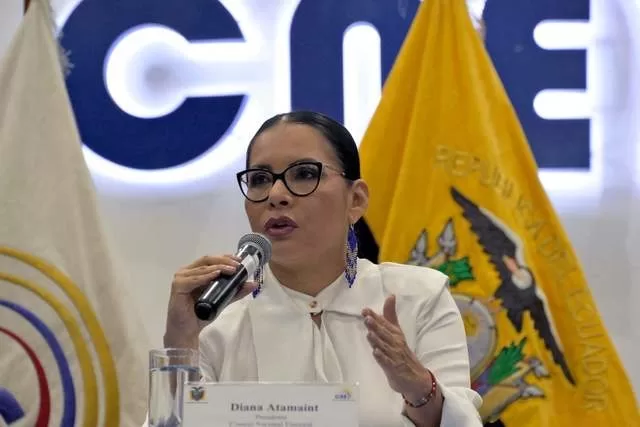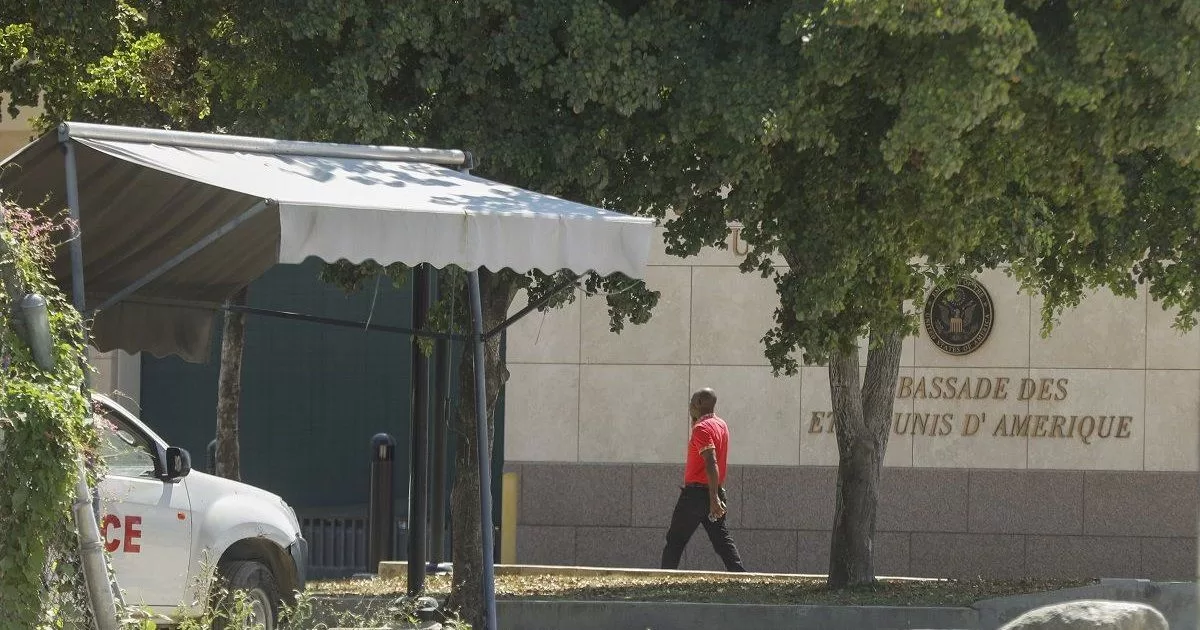quit. Authorities of the National Electoral Council (CNE) of Ecuador have received death threats in the middle of the process for the anticipated general elections on August 20, the president of the entity, Diana Atamaint, denounced on Monday.
“Personally, I have not received death threats. We hope that does not happen, but I could not say the same about other directors who have received them,” the official said in statements to the press.
In recent years, Ecuador has faced an onslaught of violence linked to drug trafficking, which in the middle of the electoral process leaves the death of a mayor and a candidate for deputy, as well as threats against a presidential candidate.
Atamaint indicated that public officials are “exposed to these circumstances, not only receiving (death) threats, but also political violence,” such as insults on social networks.
A war for power between drug gangs has led to constant prison massacres, some of the worst recorded in Latin America and which have left more than 430 prisoners dead since 2021.
Crime in the country doubled the homicide rate in 2022, when it reached 25 per 100,000 inhabitants, while until June 2023 it was 18. For this year, experts consider that it will climb to 40.
“We are at the gates of election day, (political) violence becomes much more aggressive, at least in (social) networks,” said the head of the CNE.
Ecuador, with a population of 18.3 million, will elect a president, vice president and the 137 parliamentarians on August 20 after right-wing president Guillermo Lasso dissolved the opposition National Assembly in May to end a “serious political crisis and internal commotion.”
The dissolution, which gave way to snap general elections, came amid an impeachment trial to remove Lasso.
Of the eight presidential candidates, the intention to vote is led by the lawyer Luisa González (26.6%), the only woman in the running and close to the former socialist president Rafael Correa (2007-2017), followed by the journalist Fernando Villavicencio (center, 13.2 percent), indigenous lawyer Yaku Pérez (left, 12.5 percent) and economist and former vice president Otto Sonnenholzner (right, 7.5 percent), according to the most recent Cedatos survey.
The Constitution establishes that in order to avoid the runoff, it is necessary for the winner to obtain at least 40 percent of the valid votes and a difference greater than ten percentage points over the second in the first round.






